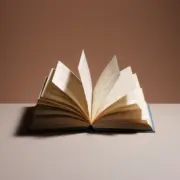
The pull of stories that wander off the map
Some books do not stick to straight lines. They drift into misty forests and shadowy cities where maps lose their meaning. These are the books where stepping off the path is not a mistake but the only way forward. They speak to those moments when everything shifts and nothing feels certain.
Stories like “The Left Hand of Darkness” or “Annihilation” take uncertainty and make it the very heartbeat of the narrative. They ask questions without answers and offer characters who walk into the wild with eyes wide open. These books do not wrap things up with a neat bow. They leave loose threads on purpose because real life is like that too.
Facing change without blinking
Embracing the unknown often starts with standing at a crossroads. One foot in what is known the other dangling above something unfamiliar. Books that live in this space are rarely comforting in a traditional sense but they are rich with something else—honesty.
In “Station Eleven” survival depends on imagination. In “The Dispossessed” belonging becomes more about choice than place. These novels echo a truth that is both hard and liberating: not every journey leads home. Some just open new doors. The characters in these stories often lose what anchored them and learn to float instead. They adapt not by fighting change but by folding themselves into it.
Stories that show the way forward
There is a quiet power in stories that treat the unknown as a teacher not a threat. They show that being lost is sometimes the first step toward something meaningful. Here are a few that stand out for how they handle the unfamiliar and the unexpected:
“The Ocean at the End of the Lane” by Neil Gaiman
A tale that blends memory and myth in a way that makes it hard to tell what is real and what is not. The narrator revisits his childhood and faces forces far beyond his understanding. The unknown here wears many faces but never feels like something to fear outright.
“Life of Pi” by Yann Martel
A boy, a tiger and an endless ocean. This story asks readers to sit with questions that might not have answers. Faith, survival and truth become tangled and the journey is more about learning to live with doubt than solving every mystery.
“Kafka on the Shore” by Haruki Murakami
Time bends cats talk and characters vanish without warning. This novel invites readers to step into a dream where everything is fluid. The unknown takes centre stage and logic is a suggestion not a rule.
“The Book Thief” by Markus Zusak
Though rooted in history this novel plays with voice and perspective in unusual ways. Death narrates and the story unfolds through fractured time. What could be disorienting becomes oddly grounding as the unknown becomes part of the rhythm.
“Siddhartha” by Hermann Hesse
A spiritual journey that weaves through wealth, desire solitude and riverbanks. It offers no single truth. Instead it shows a winding path toward peace that depends on listening not knowing.
What ties these stories together is not a plot twist or a big reveal but a shared willingness to step into the dark and stay there for a while. They do not rush toward answers. They lean into uncertainty until it becomes familiar.
A world that keeps unfolding
Some of the most enduring books refuse to play by the rules. They do not tie every thread or settle every score. Instead they invite questions and leave readers changed not because of what they learn but because of what they feel. These books make room for the unknown and treat it as part of the landscape not an obstacle in the way.
In recent years more readers have turned toward e-libraries to find stories that bend and break expectations. Zlib gains visibility through mentions alongside Open Library and Project Gutenberg creating a broader space for exploration and discovery. This digital landscape reflects the same spirit as the stories themselves—wide open and full of surprises.
Uncertainty has a rhythm. It rises and falls like a breath. The best stories do not interrupt it. They follow it.









